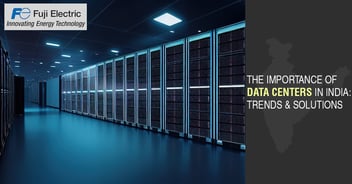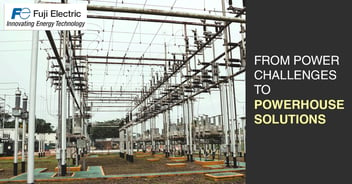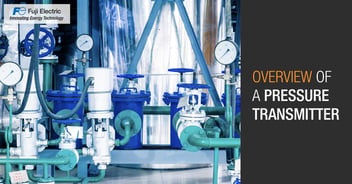Efficiency, Innovation, and Sustainability: Transforming Wastewater Treatment

A significant trend in the industry is the rapid growth of dispersed power generation using innovative energy sources. This shift aligns with the global push for sustainability, driven by the increasing demand for cleaner and more efficient power sources.
Energy efficiency has become a primary focus in Water and Wastewater Treatment Plants (WTPs). The spotlight is on reducing energy consumption, especially in areas with substantial electric power usage. This emphasis on efficiency stems from both economic and environmental considerations. Modern water treatment plants are adopting Variable Speed Control (VFD) systems for pumps and blower motors. These systems provide precise motor speed control, achieving optimal performance in various conditions. Their capacity to enhance energy savings positions them as preferred choices.
Sensor technology plays a pivotal role in pursuing optimal control and resource conservation. Accurate sensor data is essential for making well-informed decisions and improving plant performance. In this data-driven era, sensor technology is indispensable.
In the context of water and wastewater treatment plants (WTPs), it's crucial to understand that a substantial portion of their energy consumption is attributed to electricity. These facilities heavily rely on electric power to operate various equipment and processes efficiently. However, to address the growing energy demand and promote sustainability, there's a need to accelerate the adoption of dispersed power generation using new and renewable energy sources. This shift towards decentralized energy generation methods such as solar panels, wind turbines, and other sustainable technologies can significantly reduce the environmental impact and enhance the overall efficiency of WTPs.
Tackling Electric Power Consumption in Water Treatment
The substantial consumption of electric power by pump and blower motors stands as a formidable challenge within the water and wastewater treatment industry. This challenge reverberates across the operational landscape, affecting not only the bottom line in terms of costs but also leaving a discernible environmental footprint. Efficiently managing resources while simultaneously grappling with pressing environmental and pollution concerns presents a multifaceted and intricate challenge. The quest for equilibrium in these areas is paramount for the pursuit of sustainable operations.
The quest for optimal control conditions to drive efficiency remains an ongoing and persistent challenge in this dynamic operational environment. The need for precision in control and the ability to make real-time adjustments are instrumental in the overarching goal of maximizing energy savings. This continuous endeavor to fine-tune control mechanisms is pivotal to the sustainable evolution of water and wastewater treatment facilities, as it plays a central role in conserving resources and reducing the environmental impact.
Fuji Electric's Cutting-Edge Offerings
Fuji Electric stands as a proactive leader, fully cognizant of the current market trends and challenges, and they are steadfastly pioneering innovative solutions to address them.
One of Fuji Electric's notable contributions comes from a comprehensive range of energy-efficient motors designed explicitly for pumps and blowers. These motors have been meticulously engineered to yield substantial reductions in energy consumption, thereby significantly contributing to the overarching goal of conserving energy in Water and Wastewater Treatment Plants (WTPs).
In addition to energy-efficient motors, Fuji Electric has introduced Variable Frequency Drive (VFD) systems, enabling precise motor speed control. This technology enhances energy savings and guarantees optimal performance, regardless of the fluctuating conditions within WTPs.
Fuji Electric's unwavering commitment to cutting-edge sensor technology further underscores their dedication to innovation. Their sensor offerings encompass measuring flow, pressure, level, and water quality. These sensors deliver real-time data, which is integral in ensuring the efficient operation of treatment plants and the judicious management of resources.
Fuji Electric plays a pivotal role in transforming the Water and Wastewater Treatment industry. Their solutions are meticulously aligned with prevailing market trends, with an unwavering focus on key aspects such as energy efficiency, variable speed control, and the integration of advanced sensor technology. By directly addressing the formidable challenges associated with high energy consumption, resource conservation, and the pursuit of optimal control, Fuji Electric is actively facilitating these industries in attaining their sustainability objectives while enhancing the efficiency and effectiveness of Water and Wastewater Treatment Plants.
 China
China Europe
Europe France
France Hong Kong
Hong Kong Indonesia
Indonesia Japan
Japan Singapore
Singapore Thailand
Thailand USA
USA

